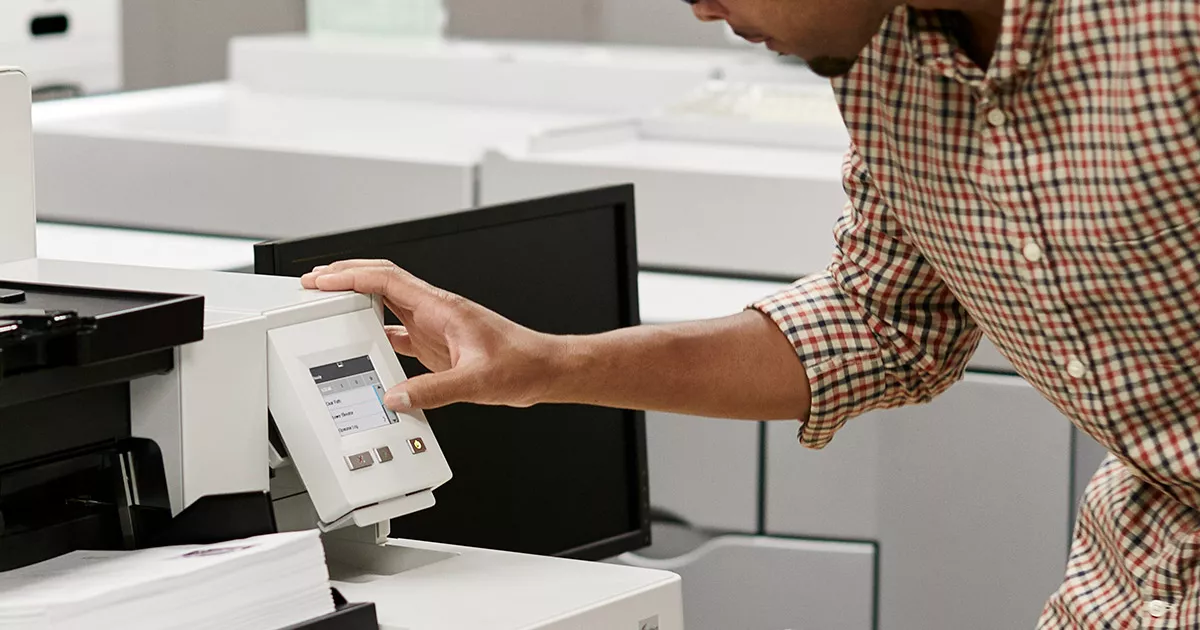
Note: This article was originally written in German. This is an auto-generated translation of that original article.
Usually, you only recognize the quality of service when a quick solution is needed. Wherever high volumes of paper documents are scanned, time is a valuable resource. If a production scanner breaks down or a software error occurs, subsequent processes are delayed and can lead to lost revenue and annoyed customers. Maintenance contracts are a sensible way to minimize downtime if the service is right.
There are five points that will help you to recognize which factors indicate good service before signing a maintenance contract.
- Technical hotline
- Who operates the technical hotline? Is it the manufacturer itself or an external call center?
- Kodak Alaris offers its own technical hotline with skilled and experienced employees. The resolution rate of 92% on the first call speaks for itself.
- Specialized service technicians
- When it comes to the team of technicians, the question also arises as to whether an external service provider is used who maintains and repairs many different devices, or whether it is the manufacturer's employees who are trained in the in-house devices and software solutions.
- Kodak Alaris's own nationwide service team consists of experienced and highly trained technicians.
- Fast repair
- Among other things, the Service Level Agreements (SLAs) define the response time. If the technician arrives within this time, he has complied with the SLAs. However, if he has only carried out a fault analysis and now has to order the appropriate spare part, days may pass before the scanner is ready for use again.
- At Kodak Alaris, the technician receives all the necessary information from the hotline before his assignment. This means that he can go to the customer well prepared with the relevant spare part and restore the scanner on the first visit in almost all cases. That is our understanding of compliance with the SLAs.
- Availability of original spare parts
- A service provider usually supports many different brands of equipment, which makes it almost impossible to stock the various original spare parts. This means that you have to rely on fast delivery from the individual manufacturers or you have to use identical parts, which are often not comparable in terms of quality.
- All technicians in the Kodak Alaris service team are equipped with the components and spare parts that experience has shown to be necessary. Our central warehouse in Stuttgart guarantees fast delivery, if necessary overnight, with thousands of parts, even for older devices.
- Software problems
- Service providers rarely offer help with software problems. The issues are too individual and complex for that. In such cases, the solution provider or system vendor is usually called upon.
- The Alaris Kodak hotline is available to answer questions or help with Kodak Capture Pro and Kodak Info Input Solution scanning and IDP solutions. The experts can demonstrate a resolution rate of 99% on the first call. However, our technicians are also able to solve simple issues with our capture solutions on site. We invest heavily in the training of our employees, but our technicians are not computer scientists. If it comes to complex challenges, the expertise of our Professional Services can be requested.
Overview of services
- Three-year warranty with on-site replacement, usually on the next business day, for all office scanners in the Kodak E1000 and S2000 series.
- For production scanners, there are the Advanced and Premium maintenance contracts, which include all costs for technician callouts, including travel costs, spare parts, and one or two annual preventive maintenance visits. The services can also be customized.
We do not currently offer a contract without maintenance because it would fall under the Insurance Contract Act. Since January 1, 2023, service contracts that only cover defects are considered insurance. This entails formalities and the contract costs are subject to insurance tax.


 Access Partner Portal
Access Partner Portal